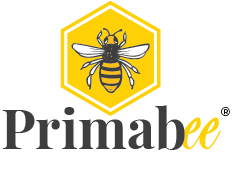Delta 8 vs. Delta 9 THC: A Comprehensive Guide for Wellness Enthusiasts in New England

In recent years, the conversation around cannabis and its various compounds has become increasingly nuanced, particularly in the wellness community of New England, including areas like Cape Cod and Boston. Two cannabinoids that often come up in these discussions are Delta 8 and Delta 9 THC. While they may sound similar, these compounds have distinct differences in their molecular structure, effects, and legal status.
Understanding the Molecular Differences: Delta 8 and Delta 9 THC
Delta 9 THC (tetrahydrocannabinol) is the most well-known compound in cannabis plants, renowned for its psychoactive effects. It occurs naturally in high concentrations in marijuana and in lower concentrations in industrial hemp, which is legal under the 2018 Farm Bill[1]. On the other hand, Delta 8 THC is a minor cannabinoid found in cannabis plants. It's typically present in very low quantities and is often molecularly modified in laboratories to increase its concentration[2].
The primary difference between these two compounds lies in their chemical structure. Delta 8 and Delta 9 THC have a double bond in their molecular chain, but the position of this bond differs. In Delta 9 THC, the double bond is on the ninth carbon chain, whereas in Delta 8 THC, it's on the eighth. This slight difference significantly impacts how these cannabinoids interact with the body's endocannabinoid system, influencing their psychoactive effects and potential therapeutic benefits.
The Legal Landscape: Delta 8's Status in New England
The legality of Delta 8 is a complex and evolving issue. While the 2018 Farm Bill legalized hemp-derived cannabinoids, including Delta 9 THC, provided they contain less than 0.3% THC by dry weight, the status of Delta 8 remains ambiguous. Some states have moved to limit or ban Delta 8 due to its psychoactive nature and the fact that it's often synthetically derived[3].
In New England, state governments are actively reviewing their cannabis laws, with some states considering restrictions on Delta 8. Consumers in this region should stay informed about their local laws to ensure compliance.
Scientific Insights: Health Implications of Delta 8 and Delta 9 THC
Both Delta 8 and Delta 9 THC have been the subject of scientific and medical studies, exploring their potential health benefits and risks. Research suggests that Delta 9 THC may offer therapeutic benefits, including pain relief, nausea reduction, and appetite stimulation[4]. Delta 8 THC, while less researched, is believed to have similar but milder psychoactive effects compared to Delta 9 THC[5].
However, it's important to note that the long-term health implications of these cannabinoids are not fully understood, and more research is needed to ascertain their safety and efficacy.
Navigating State Regulations on Delta 8 in New England
For residents of New England, it's crucial to understand the legal status of Delta 8 and Delta 9 THC in their specific state. Regulations can vary significantly, and staying informed is key to making responsible and legal choices regarding cannabinoid use.
Primabee's Approach: Offering Legal, High-Quality Delta 9 THC Products
Primabee, a Chatham, Massachusetts-based company, offers a range of Farm Bill 2018 compliant, high-quality Delta 9 THC products. These products are derived from industrial hemp and adhere to the legal THC limit, ensuring both safety and legality for consumers
in New England.
Integrating Delta 9 THC into Your Wellness Routine: Product Recommendations
For those interested in incorporating Delta 9 THC into their wellness routine, Primabee offers several products:
Understanding the differences between Delta 8 and Delta 9 THC is crucial for anyone in the New England wellness community looking to explore the benefits of cannabinoids. By staying informed about the molecular differences, legal landscape, and available products, consumers can make educated decisions that align with their health and wellness goals.
Footnotes:
Understanding the Molecular Differences: Delta 8 and Delta 9 THC
Delta 9 THC (tetrahydrocannabinol) is the most well-known compound in cannabis plants, renowned for its psychoactive effects. It occurs naturally in high concentrations in marijuana and in lower concentrations in industrial hemp, which is legal under the 2018 Farm Bill[1]. On the other hand, Delta 8 THC is a minor cannabinoid found in cannabis plants. It's typically present in very low quantities and is often molecularly modified in laboratories to increase its concentration[2].
The primary difference between these two compounds lies in their chemical structure. Delta 8 and Delta 9 THC have a double bond in their molecular chain, but the position of this bond differs. In Delta 9 THC, the double bond is on the ninth carbon chain, whereas in Delta 8 THC, it's on the eighth. This slight difference significantly impacts how these cannabinoids interact with the body's endocannabinoid system, influencing their psychoactive effects and potential therapeutic benefits.
The Legal Landscape: Delta 8's Status in New England
The legality of Delta 8 is a complex and evolving issue. While the 2018 Farm Bill legalized hemp-derived cannabinoids, including Delta 9 THC, provided they contain less than 0.3% THC by dry weight, the status of Delta 8 remains ambiguous. Some states have moved to limit or ban Delta 8 due to its psychoactive nature and the fact that it's often synthetically derived[3].
In New England, state governments are actively reviewing their cannabis laws, with some states considering restrictions on Delta 8. Consumers in this region should stay informed about their local laws to ensure compliance.
Scientific Insights: Health Implications of Delta 8 and Delta 9 THC
Both Delta 8 and Delta 9 THC have been the subject of scientific and medical studies, exploring their potential health benefits and risks. Research suggests that Delta 9 THC may offer therapeutic benefits, including pain relief, nausea reduction, and appetite stimulation[4]. Delta 8 THC, while less researched, is believed to have similar but milder psychoactive effects compared to Delta 9 THC[5].
However, it's important to note that the long-term health implications of these cannabinoids are not fully understood, and more research is needed to ascertain their safety and efficacy.
Navigating State Regulations on Delta 8 in New England
For residents of New England, it's crucial to understand the legal status of Delta 8 and Delta 9 THC in their specific state. Regulations can vary significantly, and staying informed is key to making responsible and legal choices regarding cannabinoid use.
Primabee's Approach: Offering Legal, High-Quality Delta 9 THC Products
Primabee, a Chatham, Massachusetts-based company, offers a range of Farm Bill 2018 compliant, high-quality Delta 9 THC products. These products are derived from industrial hemp and adhere to the legal THC limit, ensuring both safety and legality for consumers
in New England.
Integrating Delta 9 THC into Your Wellness Routine: Product Recommendations
For those interested in incorporating Delta 9 THC into their wellness routine, Primabee offers several products:
- Full Spectrum CBD Sleep Gummies: Infused with CBN, melatonin, and Delta-9 THC, these gummies are ideal for promoting restful sleep.
- Sports Cream with Organic Hemp CBD and Cool Menthol: Perfect for athletes and active individuals seeking muscle recovery.
- Vegan CBD Gummies: A delicious and convenient way to consume CBD on the go.
Understanding the differences between Delta 8 and Delta 9 THC is crucial for anyone in the New England wellness community looking to explore the benefits of cannabinoids. By staying informed about the molecular differences, legal landscape, and available products, consumers can make educated decisions that align with their health and wellness goals.
Footnotes:
- "2018 Farm Bill." U.S. Department of Agriculture.
- "Delta-8-Tetrahydrocannabinol." National Cancer Institute.
- "State Laws on Delta-8 THC." National Conference of State Legislatures.
- "Therapeutic Effects of Cannabis and Cannabinoids." National Academies of Sciences, Engineering, and Medicine.
- "Delta-8-THC: Pharmacology and Therapeutic Potential." Recent Advances in Cannabinoid Research.
-------
Disclaimer: This content is intended for informational purposes only. It's not a substitute for professional medical advice, diagnosis, or treatment. Always seek the advice of your healthcare provider with any questions you may have regarding a medical condition or treatment options.





Leave a comment